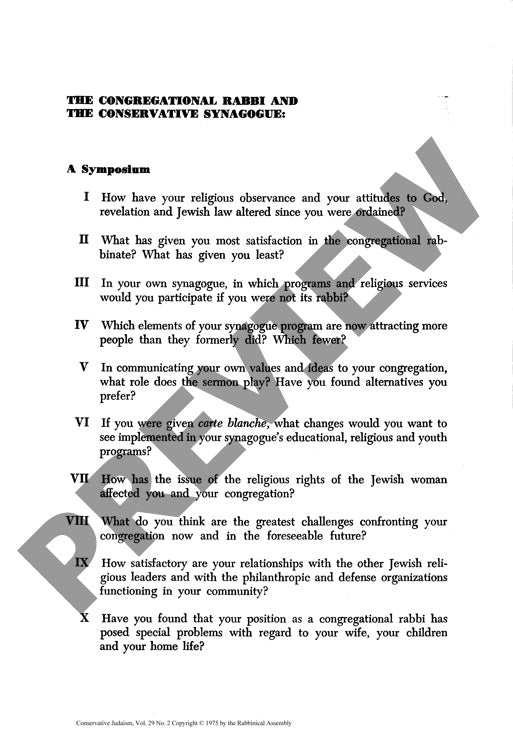The Congregational Rabbi and the Conserv
Couldn't load pickup availability
This symposium examines the experiences and perspectives of Conservative rabbis through responses from twenty-eight congregational rabbis to ten questions regarding their religious observance, professional satisfaction, and congregational challenges. The methodology involved distributing questionnaires to a cross-section of Rabbinical Assembly members ordained between 1934-1967, representing diverse ordination years and experience levels. Key findings reveal that rabbis demonstrated divergent trends in religious observance, with some becoming more liberal through congregational contact while others moved toward greater traditionalism. Participants reported greatest satisfaction in teaching and counseling roles, while expressing frustration with administrative responsibilities. The study found declining attendance at late Friday evening services, increased emphasis on Torah study over formal sermons, and cautious support for expanding women's religious rights. Rabbis identified the lack of observant congregants as their primary challenge, noting that Conservative Jews belong to Conservative synagogues but do not necessarily practice Conservative Judaism. The symposium revealed widespread adoption of non-fundamentalist approaches to revelation and general acceptance of evolving Jewish law while maintaining respect for halakhic tradition. Relationships with Orthodox colleagues showed increasing strain, particularly regarding access to communal religious facilities. The findings suggest need for enhanced rabbinic training in counseling techniques, adult education methods, and management skills, while highlighting the ongoing tension between preserving tradition and adapting to contemporary Jewish life in America.

More Information
-
Physical Description
-
Publication Information
Published 1975
ISBN
-
Publication Credits

